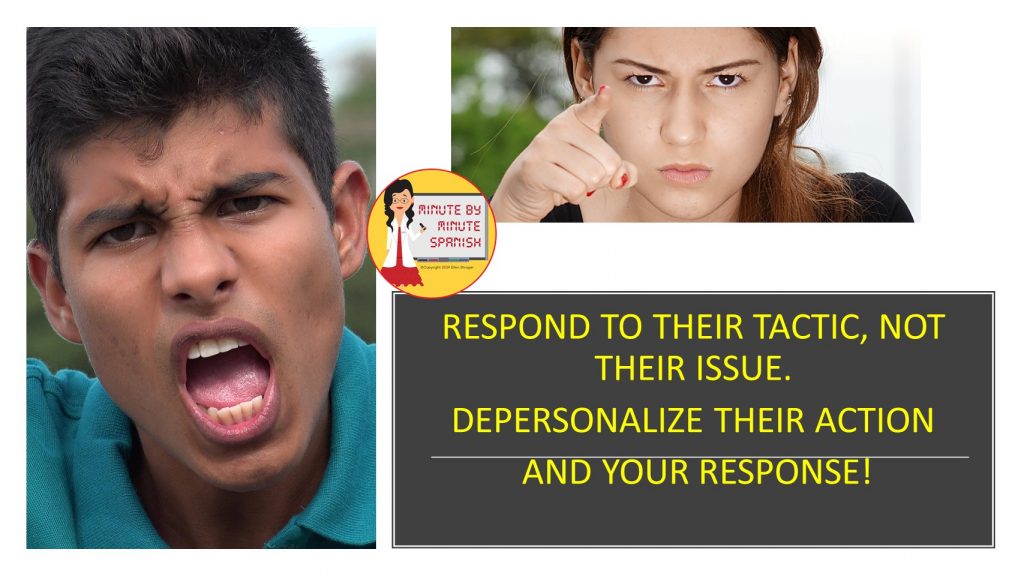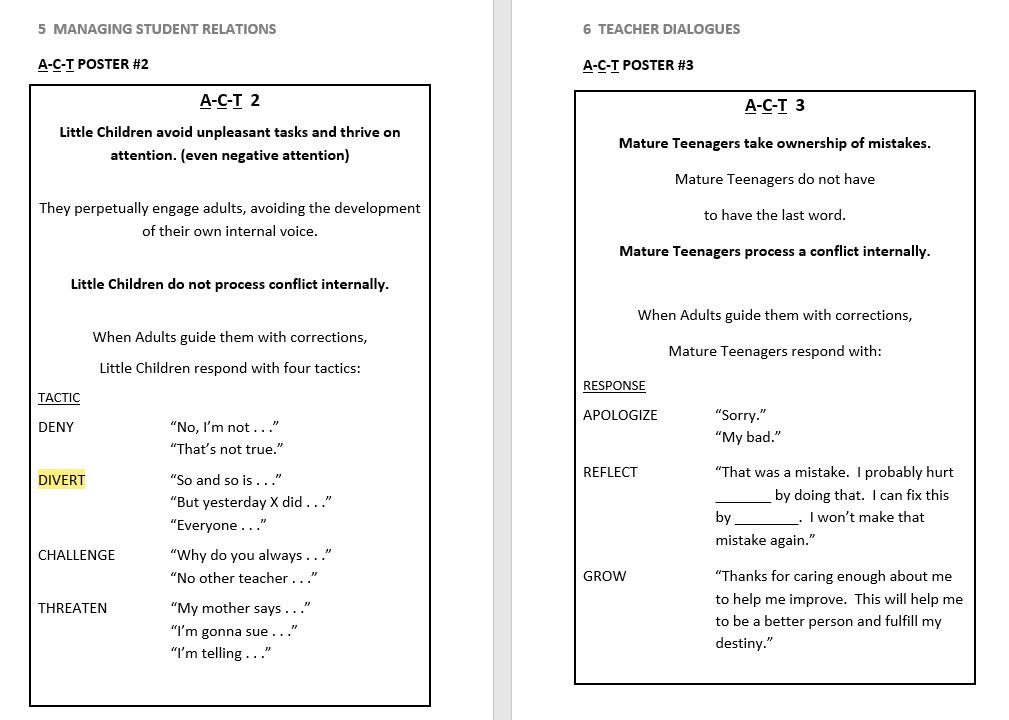This is a vintage power struggle that you will lose if you respond to the comment rather than openly acknowledging the tactic the student is doing.
From my book “Teacher Dialogues” I post two signs up and discuss them during a neutral time.
Now, let’s apply the four kinds of responses by students to the situation that a student is once again late to class. The bell has rung, you are giving directions to the rest of the class, a student slips into her chair, and you neutrally tell her to see you at the end of class about being late.
DENY: “No, I’m not!”
“That’s not true, just a little late . . .”
RESPONSE:
“OK, the little child part of you is reacting by denying [as I walk over to the posters]. I need you to take a step towards being a mature teenager and apologize. Can you do that for me today? No, well, perhaps tomorrow will be better—I believe in you.” [Then I would continue on with the lesson and let the other students tell her to hush and not be a baby.]
DIVERT: “Junior is texting!”
“But yesterday she was late.”
“Everyone is doing their homework before you check it.”
RESPONSE:
“OK, the little child part of you is reacting by diverting [as I walk over to the posters]. I need you to take a step towards being a mature teenager and apologize. Can you do that for me today? No, well, perhaps tomorrow will be better—I know you will get there.” Then I would continue on with the lesson and let the other students tell her to hush and not be a baby.
CHALLENGE: “Why do you always act like the first few minutes are important—you don’t do anything during them.”
“No other teacher cares if someone is 20 seconds late.”
” You are picking on me.”
RESPONSE:
“OK, the little child part of you is reacting by challenging me [as I walk over to the posters]. I need you to take a step towards being a mature teenager and apologize. Can you do that for me today? No, well, perhaps tomorrow will be better—I have seen many glimpses of you being very mature for your age, and I know I will see them again.” [Then I would continue on with the lesson and let the other students tell her to hush and not be a baby.]
THREATEN: “My mother says if you pick on me again she is calling the principal.”
“I’m gonna sue you for making fun of my being fat and walking so slow.”
“I’m telling my uncle the lawyer that you only single me out because I am . . .”
RESPONSE:
“OK, the little child part of you is reacting by threatening me, and it sounds like today just isn’t working well for you [as I walk over to the posters] but I need you to take a step towards being a mature teenager and apologize. Can you do that for me today? No, well, perhaps tomorrow will be better. I believe you will be able to do this and have a bright future. [Then I would continue on with the lesson and let the other students tell her to hush and not be a baby.]
After all of this repetition, you probably have the solution part memorized. Great! Now memorize these words: deny, divert, challenge, and threaten. Begin to closely observe others; practice labeling reactions in your mind and soon the correct response will fall out of your mouth naturally!




